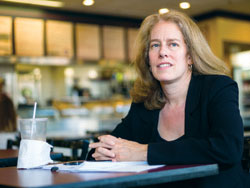Lyft pays $12.25M to settle California worker-misclassification lawsuit
![]()
Image from Shutterstock.
The ride-arranging company Lyft has settled a California lawsuit alleging that it misclassified its workers as contractors rather than employees, the Los Angeles Times reported late Tuesday.
As part of the settlement, the California-based company admitted no wrongdoing, but agreed to pay $12.25 million to an estimated 100,000 Lyft drivers. How much each driver receives will depend on how much he or she drove for the company. It will also change its terms of service so that drivers are clearly treated as independent contractors under state law.
The lawsuit had alleged that Lyft classified drivers as independent contractors but treated them as employees in many ways—for example, by reserving the right to fire them at will. Under the settlement agreement, Lyft will specify a reason for firing drivers; notify drivers at risk of termination and provide a chance to fix the problem; and provide a neutral arbitrator to hear drivers’ complaints about pay. Those changes apply to all Lyft drivers nationwide.

Shannon Liss-Riordan represented the plaintiffs in this case. Photo by Carl Tremblay.
Plaintiffs’ attorney Shannon Liss-Riordan told the newspaper that it was a good resolution, particularly since an arbitration clause in Lyft’s contract with drivers prevented them from filing a class-action case. The settlement agreement must still be approved by a judge.
No such clause has complicated a similar lawsuit against Uber, Lyft’s largest competitor, also brought by Liss-Riordan. That lawsuit is a class action currently scheduled for trial June 20.
Liss-Riordan is a Boston plaintiffs’ attorney who has pursued employment lawsuits against numerous “sharing economy” companies, including Lyft competitor Uber as well as Instacart and Shyp. A prior article by the Los Angeles Times says Liss-Riordan has won several prior lawsuits against such companies, which forced them to classify their workers as employees. She argues that the companies can afford to treat their workers as employees but prefer not to because it creates more profit.
Though Liss-Riordan has a law firm in Boston, the article says, she’s in California so much that she plans to take the California bar exam in February, then open a San Francisco office.
See also:
ABA Journal: “Do janitorial firms cash in by misclassifying workers as independent contractors?”
Updated at 3:35 p.m. to make clear that Lyft did not admit wrongdoing as part of the settlement agreement.



